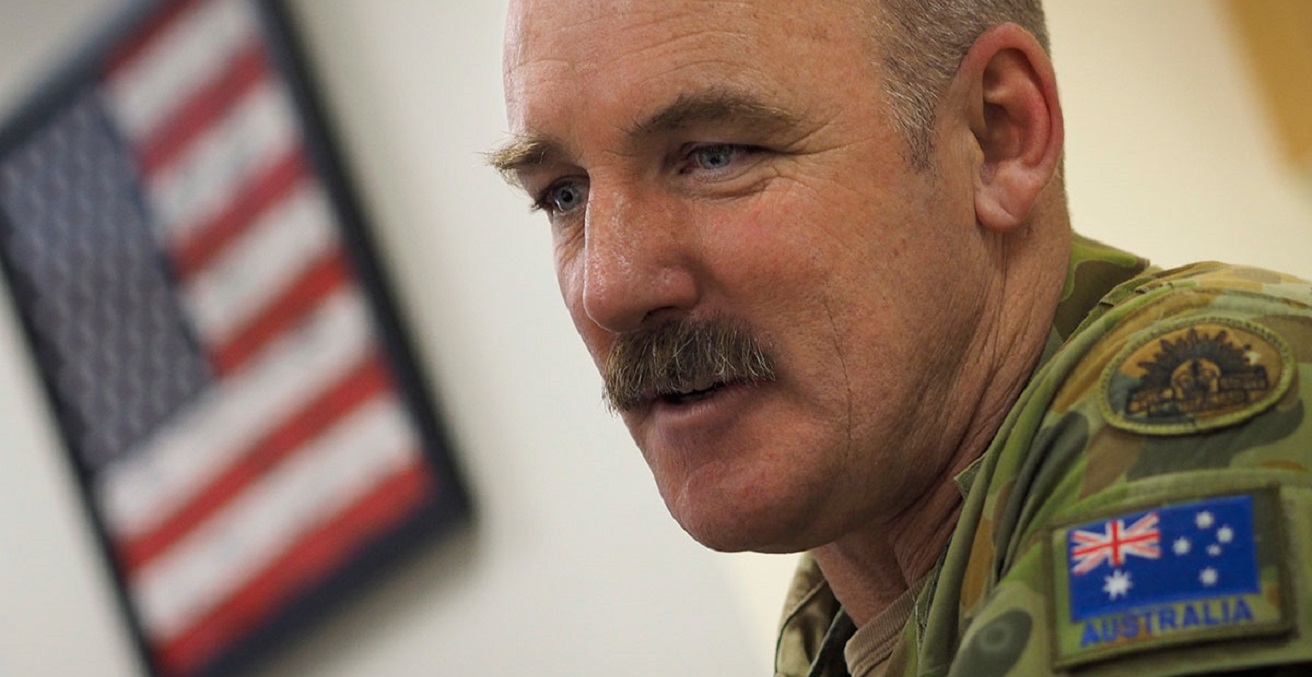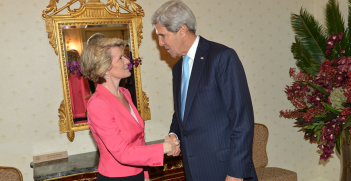Invoking ANZUS: North Korea and Turnbull's War Powers

With Donald Trump’s recent threat to “totally destroy” North Korea, Australia needs to closely examine its military obligations under ANZUS, should the US go to war.
In a statement on 11 August 2017, Prime Minister Malcolm Turnbull provided a firm commitment to the United States that the ANZUS Treaty guaranteed that “if there is an attack on the United States by North Korea … Australia will come to the aid of the United States”. This stands in contrast to Minister for Foreign Affairs Julie Bishop’s more reserved characterisation of the ANZUS Treaty as providing only an “obligation to consult”, rather than an automatic commitment to send troops.
So, who decides? Does the prime minister in fact have the power to commit Australian forces overseas unilaterally to honour Australia’s ANZUS obligations? And, if parliament objected, does it have the ability to stop him?
To begin with, it is useful to examine the origin of the powers to declare war and deploy troops overseas, more colloquially known as the ‘war powers’. The power of Australia to declare war as a sovereign nation is enshrined in the constitution. The executive government has prerogative power, supported by section 61 of the constitution, to declare war and peace, and to deploy troops to that end.
However, section 68 formally vests these powers in the governor-general as the monarch’s representative in Australia, and not the prime minister. In practice, the governor-general makes declarations of war on the basis of cabinet advice and consultation with the prime minister, and on behalf of the nation.
However, an analysis of recent conflicts Australia has been involved in does not bear up to this assessment. As evidenced in Iraq and Afghanistan, the governor-general has not been the one who announced Australia will send troops overseas. Rather, in both cases it was then Prime Minister John Howard who declared that Australia would be sending troops and air assets to the Middle East.
This is because in practice, it is generally accepted that the governor-general’s war powers are largely ceremonial, and that it will be the prime minister who ultimately decides on the deployment of forces. It therefore appears that Prime Minister Turnbull would be entirely within his rights to unilaterally pledge Australia’s commitment to support US military action in Korea as he appeared to do so in his earlier press statement.
What could be done if the opposition, or even other cabinet ministers decided that it was not in Australia’s interests to send troops to Korea? Would they have the power to prevent the prime minister from exercising these powers? Section 51(vi) of the constitution provides that parliamentary approval is required for the “making of laws with respect to naval and military defence of the commonwealth… and the control of the forces”.
If the prime minister was required to enact new laws to fund and arrange the deployment of Australian troops to the Korean Peninsula, then there would be potential for parliament to prevent such legislation from being passed. However, this is not the case as the prime minister already has the authority to deploy troops overseas under section 50C of the Defence Act 1903, which states that members of the army may be required to serve either within or beyond the territorial limits of Australia.
Although there have been numerous attempts since 1985 to alter legislation to require parliamentary approval prior to the deployment of troops, none have been successful. Attempts to challenge the prime minister’s prerogative to unilaterally deploy the military (such as in the 2001 Tampa Incident) have been rejected. The High Court found that although parliament had the right to control war powers to an extent, for example by proposing amendments to existing legislation, it could not remove or curtail them to a significant degree. Based on this, it seems that the prime minister would be well within his rights to commit troops to the Korean Peninsula, should the need arise. There is not much that parliament could do, should it object to the prime minister’s decision.
The reality is that in all conflicts since World War I, parliament has never been given the opportunity to debate Australia’s involvement prior to the prime minister’s commitment of troops. The prime minister has always been responsible for deciding when, where and how many Australians will be committed to any military engagement. If Malcolm Turnbull decided to deploy the entire ADF to the Korean Peninsula tomorrow, short of an objection from the governor-general, there is nothing that parliament could do to stop him.
Regan Ho is an intern with the Australian Institute of International Affairs NSW. He is studying a Bachelor of Arts and Commerce at the University of Sydney.
This article is published under a Creative Commons Licence and may be republished with attribution.





